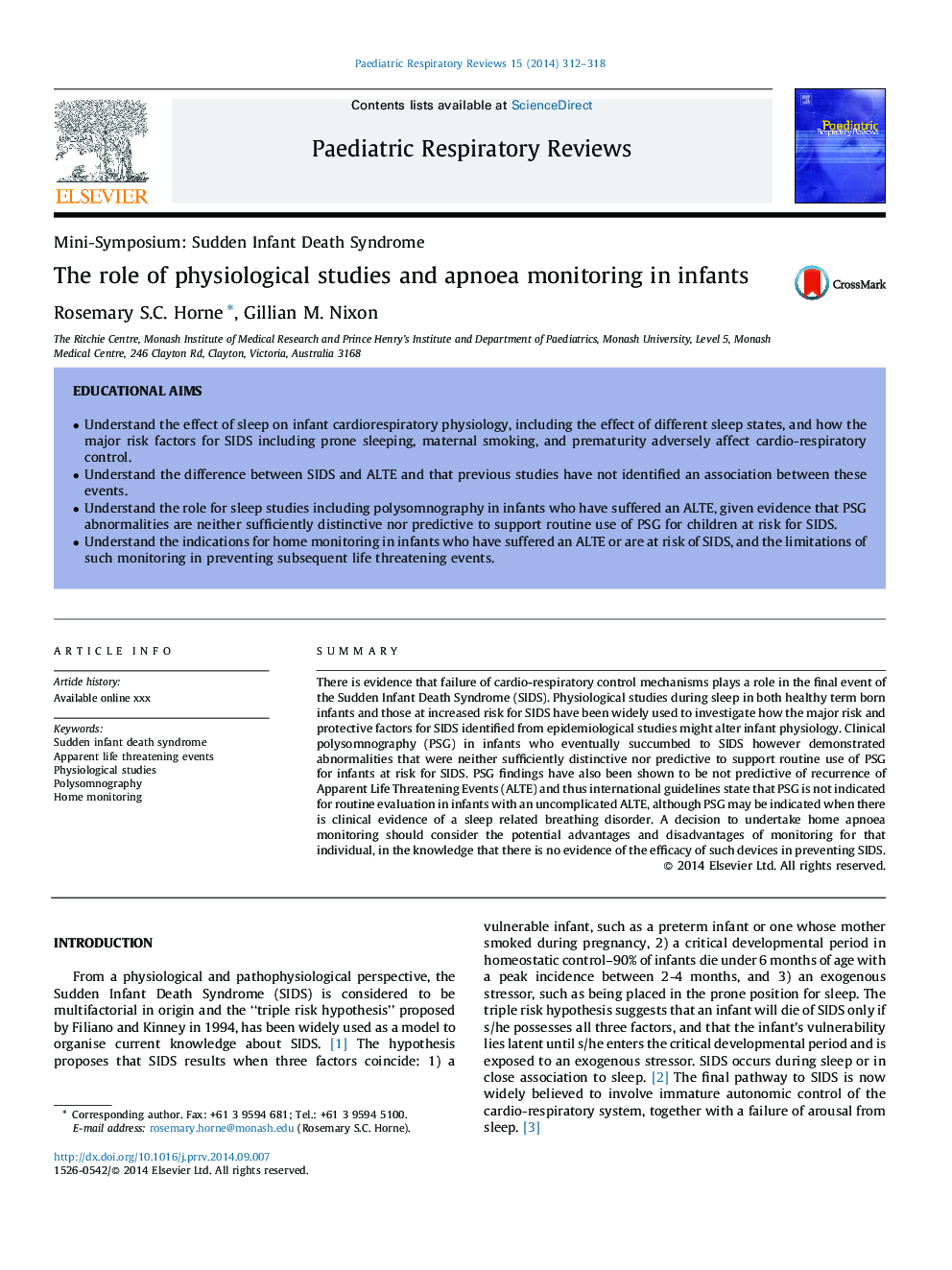| Article ID | Journal | Published Year | Pages | File Type |
|---|---|---|---|---|
| 4170875 | Paediatric Respiratory Reviews | 2014 | 7 Pages |
SummaryThere is evidence that failure of cardio-respiratory control mechanisms plays a role in the final event of the Sudden Infant Death Syndrome (SIDS). Physiological studies during sleep in both healthy term born infants and those at increased risk for SIDS have been widely used to investigate how the major risk and protective factors for SIDS identified from epidemiological studies might alter infant physiology. Clinical polysomnography (PSG) in infants who eventually succumbed to SIDS however demonstrated abnormalities that were neither sufficiently distinctive nor predictive to support routine use of PSG for infants at risk for SIDS. PSG findings have also been shown to be not predictive of recurrence of Apparent Life Threatening Events (ALTE) and thus international guidelines state that PSG is not indicated for routine evaluation in infants with an uncomplicated ALTE, although PSG may be indicated when there is clinical evidence of a sleep related breathing disorder. A decision to undertake home apnoea monitoring should consider the potential advantages and disadvantages of monitoring for that individual, in the knowledge that there is no evidence of the efficacy of such devices in preventing SIDS.
